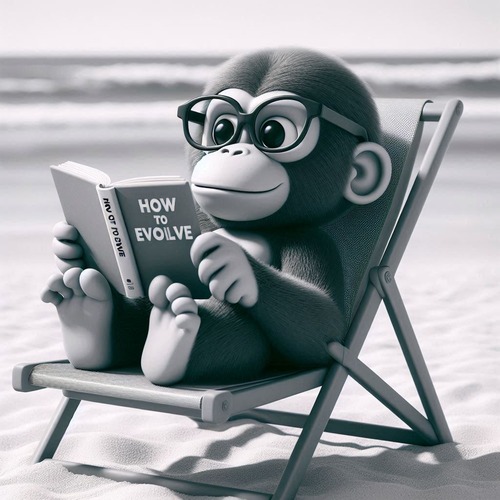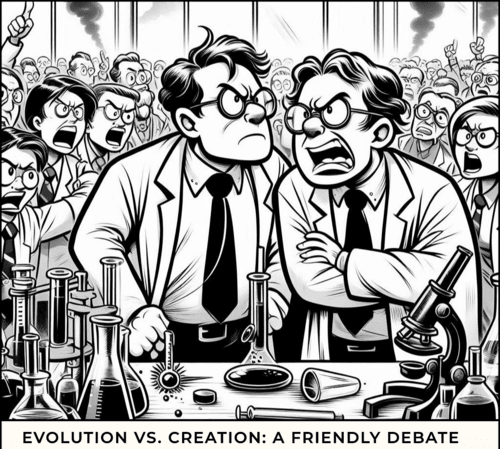Conspicuous Gaps in the Evolution Narrative
“Evolution Explains Everything”—or so claimed a plaque on the desk of a professor. So, does the theory of evolution really explain everything? Come to think of it, it doesn’t have a plausible answer even for how life, or living matter, evolved from non-life. The theory of evolution has long been presented as a scientific explanation for the diversity of life. Yet, upon closer examination, we discover conspicuous gaps in the evolution narrative that point to an intelligent designer.
These four critical points continue to not only challenge the evolutionary framework but also to subtly point toward a grand design:
The Masterful Design of the Simplest Cell: The cell, often cited as the basic unit of life, is anything but simple. Its intricate machinery and complex functions betray a level of design and sophistication that mere chance struggles to account for. The existence of such a well-orchestrated system from the get-go suggests the handiwork of an intelligent creator, one who engineered life with purpose and precision. This intelligent design, come to think of it, underpins everything God has made—a fact we don’t thank Him enough for.
DNA—The Signature of a Divine Programmer: DNA, with its elegant structure and encoded information, operates like a sophisticated software program. This abstract coding system, far from being a product of random processes, implies the presence of a master programmer. The precise language of genetics, akin to a cosmic script, points to a divine intelligence that crafted the very essence of life. It’s a clear indicator of the intelligent design at the molecular level.
The Fossil Record—A Testament to Sudden Creation: The fossil record, rather than displaying a gradual evolution of species, reveals a startling absence of transitional forms. These persistent gaps suggest the tapestry of life is not the result of slow, incremental changes but of distinct, purposeful acts of creation. The sudden appearance of fully formed species in the fossil record can be seen as chapters in a story authored by a wise creator. The fossil record thus highlights significant evolution gaps.
The Origin of Organs—Indicators of Purposeful Design: The origin of complex organs such as the eye or brain poses a significant challenge to the evolutionary model. Advanced organs like eyes and brains cannot have evolved through just a few random mutations, but required an improbably large number of perfectly coordinated, specific genetic changes to allow the organs to develop their precise, functional complexity. Their intricate design and purposeful roles indicate an intentional and directed creative force behind their emergence. The harmonized formation of new organs, each serving unique purposes, suggests the work of an intelligent designer who shapes life with foresight and intention. The highly complex process involved in producing novel organs seems too great a hurdle for the random, undirected mechanisms of evolution to overcome, pointing again toward the involvement of an intelligent design.
In light of these conspicuous gaps in the evolution narrative, it becomes apparent belief in Darwin’s theory requires a leap of faith, akin to, if not exceeding, the faith in a divine creator. The intricacies of life whisper the possibility of an intelligent force at work, inviting us to look beyond the material and consider the spiritual craftsmanship that shapes us and our world. This doesn’t negate science, but invites us to consider a spiritual dimension to the story of life.
Related Reads:
Editor's Pick
SUPPORT US:
Feel the Holy Spirit's gentle nudge to partner with us?
Donate Online:
Account Name: TRUTHS TO DIE FOR FOUNDATION
Account Number: 10243565459
Bank IFSC: IDFB0043391
Bank Name: IDFC FIRST BANK






